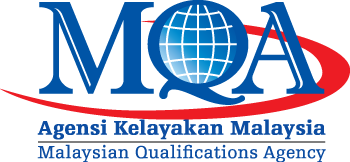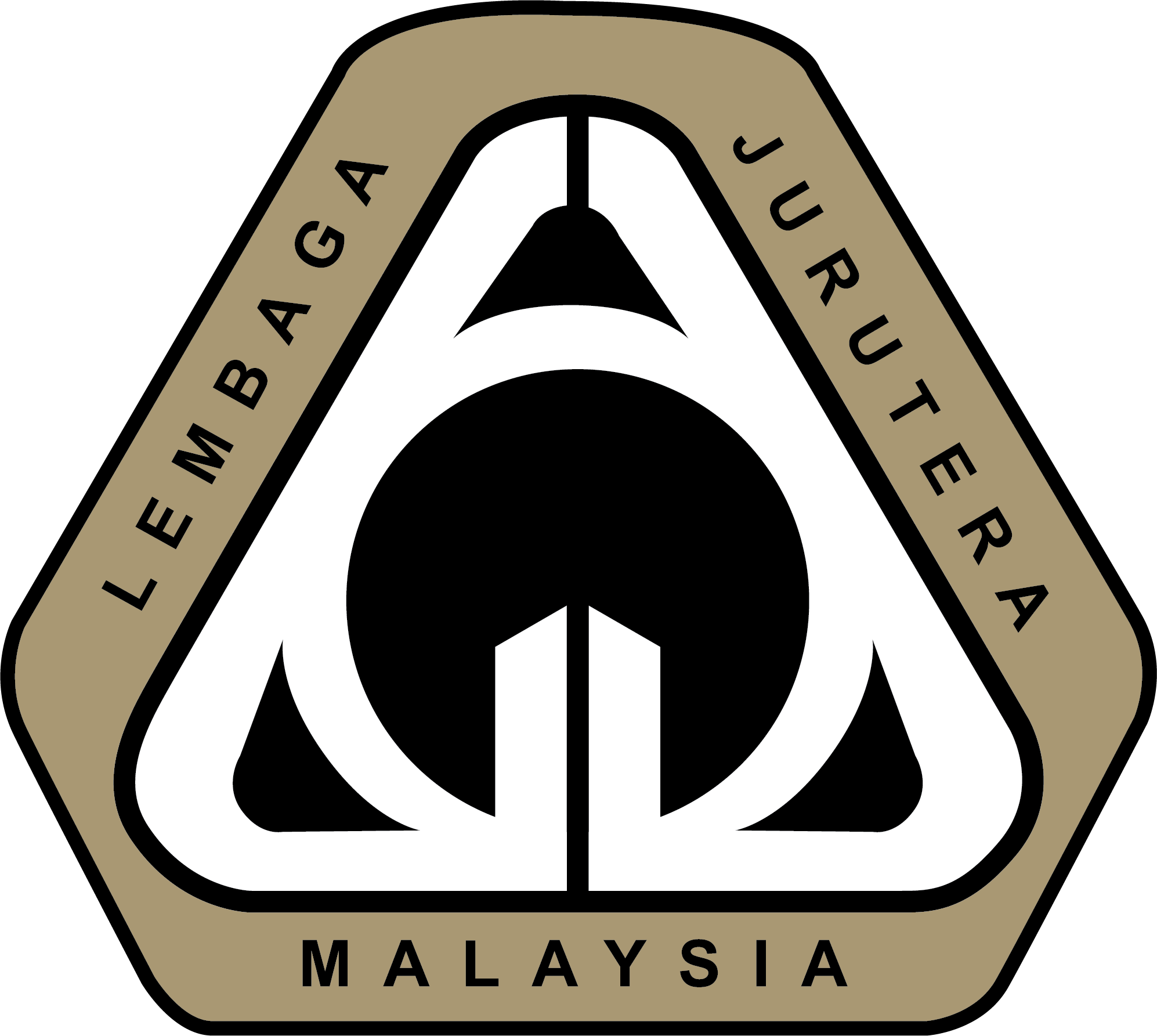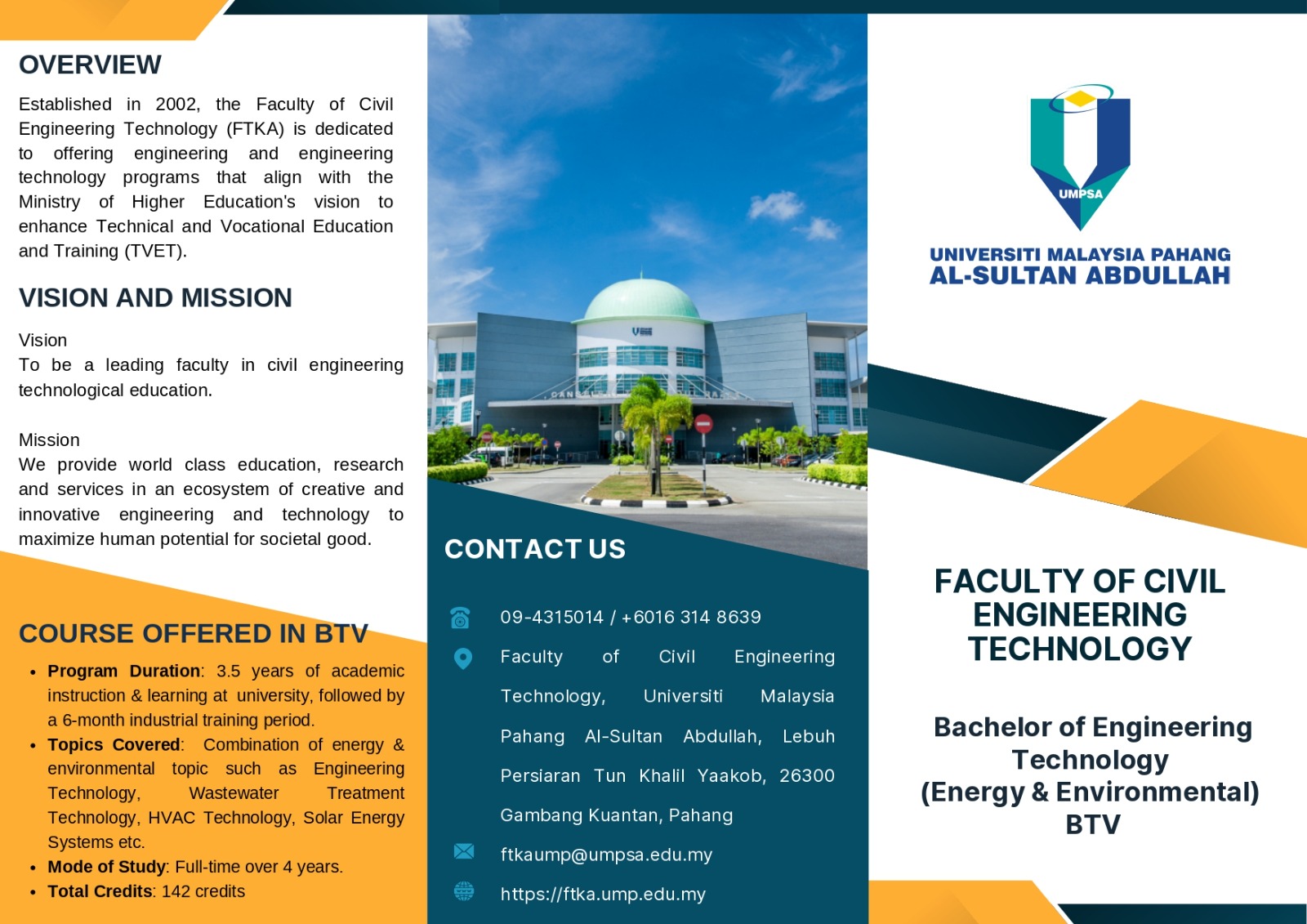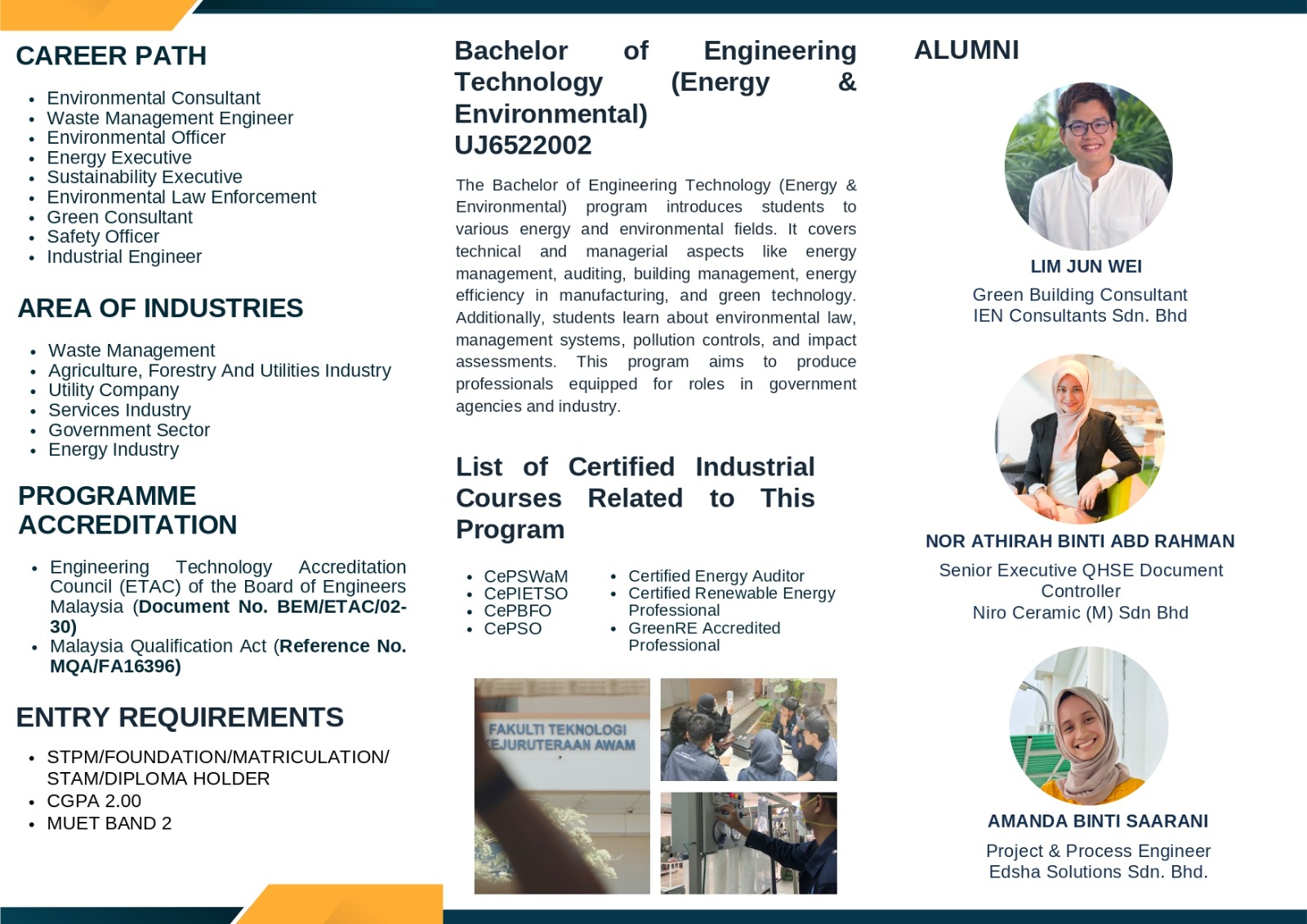Bachelor of Engineering Technology
(Energy & Environmental) with Honours
- OVERVIEW
- PROGRAMME EDUCATIONAL OBJECTIVES (PEO)
- PROGRAMME OUTCOMES (PO)
- ENTRY REQUIREMENTS
- CAREER OPPORTUNITIES
- FEES
- ACCREDITATION
Bachelor of Engineering Technology (Energy and Environmental) with Honours introduces students to the diverse areas of energy and environment. This program guided the students to learn on the energy-related technical and management topics including energy management and auditing, building management, energy efficiency in manufacturing, and alternative sources of energy.
The students will also learn about the environmental policies, environmental management system, environmental pollution controls, and environmental impact assessment. This program is designed to produce energy and environmental technologists for government agencies and industry. It emphasizes on engineering and technological advancements to improve the environment, which involves the development of new green technologies, as well as providing reductions in carbon footprint.
The duration of this bachelor program is 4 years which requires students to complete 142 total credit hours.
PEO1 : Practice fundamental and recent knowledge specializing in energy and environmental engineering technology.
PEO2 : Competence in energy and environmental engineering technology demonstrate skills of lifelong learning for professional and personal development.
PEO3 : Participate in professional ethics and social skills to meet the needs of society.
PO1- Knowledge: Apply knowledge of mathematics, natural science, computing and engineering fundamentals and an engineering specialization as specified in SK1 to SK4 respectively to defined and applied engineering procedures, processes, systems or methodologies;
PO2- Problem analysis: Identify, formulate, research literature and analyse broadly-defined engineering problems reaching substantiated conclusions using analytical tools appropriate to their discipline or area of specialisation with considerations for sustainable development; (SK1-SK4)
PO3- Design/ development of solutions: Design solutions for broadly-defined engineering technology problems and contribute to the design of systems, components or processes to meet identified needs with appropriate consideration for public health and safety, whole-life cost, net zero carbon as well as resource, cultural, societal, and environmental considerations as required; (SK5)
PO4-Investigation: Conduct investigations of broadly-defined engineering problems; locate, search and select relevant data from codes, data bases and literature, design and conduct experiments to provide valid conclusions;(SK8)
PO5- Tool Usage: Select and apply, and recognize limitations of appropriate techniques, resources, and modern engineering and IT tools, including prediction and modelling, to broadly defined engineering problems; (SK2 and SK6)
PO6- The Engineering Technologist and the World: Analyze and evaluate sustainable development impacts to: society, the economy, sustainability, health and safety, legal frameworks, and the environment, in solving broadly-defined engineering problems; (SK1, SK5, and SK7).
PO7- Ethics: Understand and commit to professional ethics and norms of engineering technology practice and adhere to relevant national and international laws. Demonstrate an understanding of the need for diversity and inclusion; (SK9)
PO8- Individual and Collaborative Team Work: Function effectively as an individual, and as a member or leader in diverse and inclusive teams and in multi-disciplinary, face-to-face, remote and distributed settings; (SK9)
PO9- Communications: Communicate effectively and inclusively on broadly defined engineering activities with the engineering community and with society at large, by being able to comprehend and write effective reports and design documentation, make effective presentations, taking into account cultural, language, and learning differences;
PO10-Project Management and Finance: Apply knowledge and understanding of engineering management principles and economic decision-making to one’s own work, as a member and leader in a team and to manage projects in multidisciplinary environments;
PO11- Life Long Learning: Recognize the need for, and have the ability for i) independent and life-long learning and ii) critical thinking in the face of new specialist technologies. (SK8).
- STPM Holder
- Matriculation/Foundation Holder
- Diploma Holder
- IPTS Foundation Holder
More info on UMPSA ADMISSION
- Energy Engineer / Technologist / Manager / Auditor / Executive / Consultant / Educator
- Environmental Technologist / Manager / Auditor / Executive / Consultant / Educator
- Sustainability Executive / Officer
- Energy System Designers / Developers/Operators
- Environmental Law Enforcement
- Solar Designer / Engineer
- Safety & Health Officer
- Project Management
More info on PROGRAMME FEES
This program is accredited under the Malaysia Qualification Act (MQA) MQA FA2292 and Engineering Technology Accreditation Council (ETAC), ensuring its recognition and adherence to high educational standards.
More info on MQA Accreditation and ETAC Accreditation.





